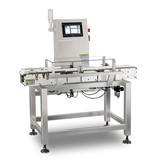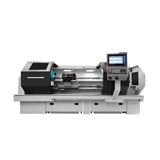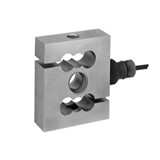A key revision is the immediate reopening of Standards Australia’s funded and supported development pathways for new projects. This financial year current active projects remain the focus of support. All active projects will be supported, within acceptable timeframes, to completion.
From the next financial year, all available levels of Standards Australia Standards Development services will be allocated to selected new projects on a prioritised basis. This will support work involved with international adoptions, national mirror committees, approved Committee Driven projects and Standards Australia Driven projects. To increase capacity and effectiveness, Standards Australia will continue to invest in modernising and maintaining its technical and operational infrastructure to support Standards development.
The November Annual Council meeting will be augmented by Standards Australia reporting around May each year to all Council Members on budget position and the outlook for available resources, demand and capacity for Standards Australia funded projects.
Senator Kim Carr, Minister for Innovation, Industry, Science and Research has agreed to the revised approach from Standards Australia to immediately reinstate the Standards Australia Driven Pathway, along with the proposed governance and budgeting measures to ensure it is effectively implemented. Implementing the revised approach will be one of the many things Standards Australia does to fulfil its obligations under the Memorandum of Understanding.
Standards Australia will now work towards implementing these revisions along with the development of prioritisation criteria and conditions for allocating Standards Australia’s resources. Stakeholders will continue to be kept informed as these changes are developed and rolled out.
This agreed method of supporting prioritised projects replaces the proposed Transitional Support and Grant Scheme foreshadowed in August 2009.
Standards Australia acknowledges the many constructive contributions from stakeholders that have helped Standards Australia to refine its new business model. The necessary business transformation, following the separation from SAI Global in 2003, will allow Standards Australia to continue to deliver Standards and other Net Benefit solutions to the community well into the future.
How it will work
Under this revised approach, stakeholders can choose to submit project proposals seeking Standards Australia support for Standards development. Proposed projects will be assessed to ensure the resulting Standard will deliver Net Benefit to communities of interest. The proposed projects will then be costed and evaluated against Standards Australia’s available resources.
Prioritisation criteria and conditions for accessing Standards Australia funded pathways will be developed and agreed by the Standards Australia Board and Standards Development Committee (SDC), involving wide public consultation to ensure an open and transparent approach. The SDC is a Committee of the Board focused on process approval of Australian Standards in accordance with accreditation requirements and criteria.
The SDC will be broadened to include a number of additional members to enhance public and private sector representation. With demand for Standards Australia funded projects expected to exceed available resources, the SDC will take primary responsibility to decide how best to allocate support.
Standards Australia’s other pathways (Collaborative, Committee Driven and Bureau) remain available and offer a customised solution that will be preferred by some stakeholders with specific needs. These pathways offer stakeholders choice around timeframes, resources, involvement and responsibilities required by Standards Australia and stakeholders in the Standards development process.
Project proposals that are unsuccessful in securing Standards Australia funded pathways and those projects determined as ‘provisional’ in September 2008 can also consider utilising these development pathways introduced in October 2008.
Relationship Manager support is available to assist stakeholders to consider and select the most appropriate pathway.
Under all pathways, Committees with approved projects will be required to cover the cost of holding meetings outside Standards Australia’s Sydney office and any optional ‘add on’ service enhancements.
The way forward
While Standards Australia has adjusted its business model in response to stakeholder feedback, it cannot return to the old way of operating. The facts are that the old business model was inefficient, unfair and, in the long run, unsustainable.
The rationale for the new business model remains valid - limited resources trying to service increasing demand.
Key elements of the new business model that remain in place include:
• strategic engagement on a sector by sector basis with the whole economy;
• a requirement to complete a project proposal form and Net Benefit case;
• choice of pathways and service levels - based on the resources that stakeholders can and choose to bring to the process;
• more timely and efficient Standards development; and
• live within our means to ensure the organisation’s financial sustainability in perpetuity.
Standards Australia’s number one focus continues to be Standards development activities that deliver Net Benefit to Australia.
Standards Australia will also continue to coordinate standardisation activities for Australia under its Memorandum of Understanding with the Commonwealth Government. It will continue to accredit other organisations to develop Australian Standards, and continues to promote excellence and innovation in design through the Australian International Design Awards.
Is the new business model a positive step forward for Standards Australia? Share your thoughts on Australian Standards using the form below:


-160x160-state_article-rel-cat.png)


-160x160-state_article-rel-cat.png)
-160x160-state_article-rel-cat.png)








